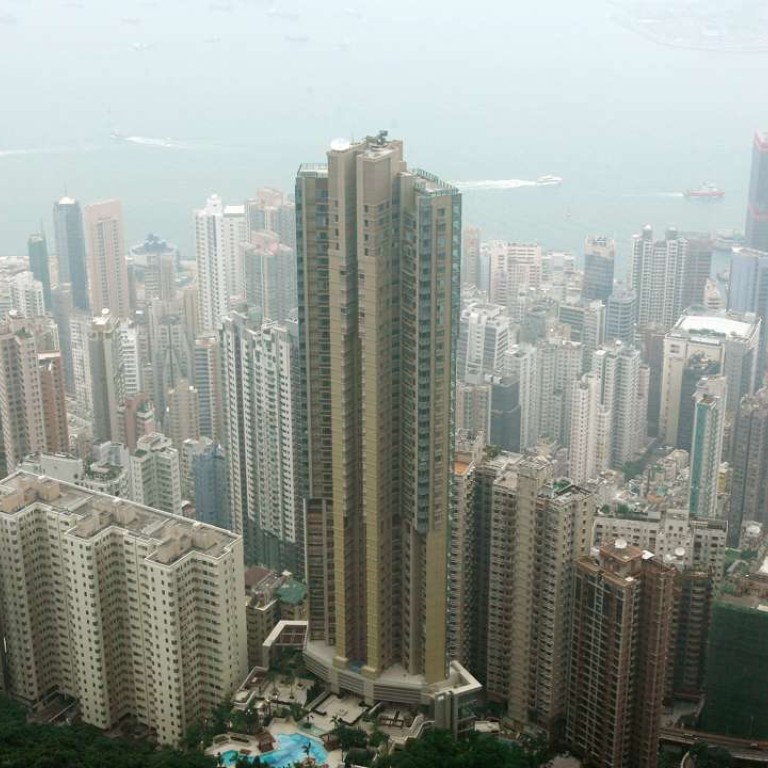
Why rent seeking has grown in Hong Kong
Defined loosely as the practise of manipulating public policy or economic conditions to increase profits, it remains one of the city’s core activities.
Think tanks around the world publish all kinds of conflicting assessments about Hong Kong’s economy.
Lausanne’s International Institute for Management Development, also known as IMD, recently announced Hong Kong is the most competitive economy in the world.
Vancouver’s Fraser Institute and Washington DC’s Heritage Foundation rate Hong Kong the freest economy in the world.
But in 2014 London’s Economist Intelligence Unit (EIU) ranked Hong Kong at the top of its newly developed crony capitalism index.
Are these conflicting findings talking about the same place? How can the leading crony capitalist economy in the world, which implies government favouritism and interference in the market, also be the freest market economy?
It is useful to examine what the EIU’s crony capitalism index actually measures.
It seeks to track the extent of crony capitalism across countries and over time by measuring the economic conditions that would be conducive to rent-seeking activities, rather than directly measuring rent seeking itself.
Rent seeking’s proxy measure is the share of the economy taken up by industries where government regulation of business activity is usually more prevalent.
The assumption is that a highly regulated industry is more likely to have more rent-seeking activities.
Historically, governments have actively regulated industries like construction, property development, finance, media, transportation, and public utilities in the name of public interest.
They regularly discuss with businesses how to structure regulations; in some places, governments have chosen to nationalise some of these industries.
The outcome of these negotiations and regulations determines how much competition will exist in these industries, how much economic rent will be on the table, and who gets how large a piece of the rent.
In general, more government regulations and bigger governments create more economic rents available for grabbing.
It is this phenomenon that is behind the design of the EIU crony capitalism index, rather than ideas of democracy and transparency.
I conjecture that there are economic, political and social factors behind Hong Kong’s high placement in the index today.
First, the industrial composition of the economy has changed since 1980 from manufacturing to services, which are far more likely to be regulated. This has increased the relative scope for rent-seeking activity in Hong Kong.
Industries where government regulations are important have expanded relative to the economy, especially finance, development, and transportation. This structural transformation of the economy has predisposed it towards more rent seeking.
Second, political reforms, both before and after 1997, have empowered new groups and constituencies. The introduction of elected representatives to the Legislative Council and District Councils has lowered the organisation cost for businesses, professionals, and other interest groups and political parties to become more effective at rent seeking.
This has also opened up new avenues and created new opportunities for rent seeking through government regulation – for example, minimum wage legislation, the mandatory provident fund and compulsory building maintenance requirements.
Political reform has therefore contributed to the growth of rent seeking activities through more government regulation of market activities.
And third, a rising share of employment is in non-profit social enterprises that are supported partly by private donations and public spending.
These enterprises pursue objectives that are not efficiency driven. Those who fund them let staff, clients and other third parties appropriate a share of the government subventions and private donations.
Some of the more mature political parties on both the establishment and opposition sides have also been rent seekers and sought to capture economic, political and social benefits either for themselves or on behalf of their constituencies.
Public sentiment against some of these activities has been on the rise, particularly among radical elements of the younger generation who see establishment politicians as rent seekers and defenders of growing economic cronyism, and opposition politicians as vote grabbing opportunists.
They are unhappy, angry, and want democratic change to stop cronyism.
While I think these sentiments have some merit, much of their moral indignation is out of proportion with the still rather modest growth of rent-seeking activities in Hong Kong.
Still, rent-seeking activities have been increasing because the fastest growing areas of our economy are those areas where considerable economic rents are up for grabs.
What about the indices? The EIU crony capitalism index measures the rise of rent-seeking economic sectors, the Fraser Institute and Heritage Foundation measure economic indicators like taxes, prices, exchange rates, unemployment rates, rule of law, and size of government in the economy have not changed, and Lausanne’s IMD looks at the productivity of the profit-oriented sectors only and have been rising.
They all measure different things. Such is the picture of the 21st century economy that Hong Kong is a leader in all these indicators, reflecting the way the world is heading today.
Richard Wong is a professor at The University of Hong Kong’s School of Economics and Finance.

